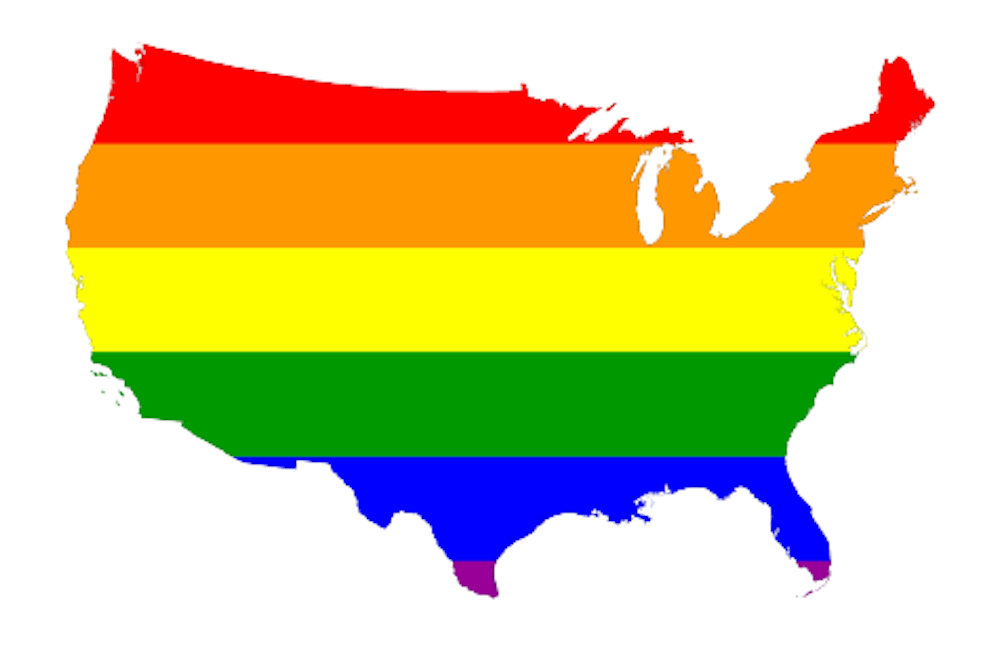Here we are a decade and a half into the new millennium and much has changed since the transition from the 20th century into the 21st. For instance, in the year 2000 no states within America legally recognized same-sex unions. Now more than thirty states have legalized same-sex marriages thus granting homosexual couples the same rights and benefits as heterosexual couples. The ban on same-sex marriage has been ruled unconstitutional, not only in the country’s capital, Washington D.C. but in states scattered all across the nation. From Alaska to Wyoming several states have made one thing clear; love is not a legal matter.
Besides the strides in legislative tolerance there is one area that has seen more advancement than any other industry within the last fifteen years. Technology now rules the world around us. Those who trembled at the mention of Y2K in the 90s now probably own at least one or more futuristic pieces of technology. Whether it's a pocket sized, personalized cell phone or a portable computer or tablet, if you're a member of American society your interact with technology. You're probably even reading this article on some kind right now.
This introduction of instantaneous information and constant communication has positive and negative contributions. The LGBTQA community has had the opportunity to expand globally and come together to extend support and share stories regardless of location. Even news outlets like The Guardian contribute to the conversation. Their interactive info-graphic shows the status of LGBT rights within a country. Various categories include the right to marry, adopt and have consensual sex. It also mentions workplace non-discrimination protection against hate crimes and violence.
The most unsettling statistic that surfaced from those findings is the significant lack of protection against crimes perpetrated solely on a basis of discrimination due to sexual orientation or gender identity. Three continents Oceania, Africa and Asia each only have one country that has some type of protection in place. Even in the United States, where the majority of states now legally recognize homosexual matrimony, protection from workplace discrimination and hate crimes still depends on the state. The protection that is available in these choice places is limited to cases of sexual orientation and excludes those of gender identity.
Excluding transgender individuals from rights and protection harbors a dangerous environment. Which brings us back to technology, remember I said there are positives as well as negatives? Although online communication can create a sense of community it also allows for people to hide behind their monitors and project negativity with anonymity. Just within the last few months there have been a string of suicides amongst transgender youth.
Just to mention a few, in August of last year, 17-year-old trans man Riley Moscato stepped in front of an Amtrak train resulting in his death. In December, another trans man, Andi Woodhouse had his death ruled a suicide when his body was found near a bridge in Pittsburgh, Pennsylvania. One issue with the current covering of deaths within the trans community is when victims have the wrong pronouns used, or they are called by something other than their preferred name.
The most recent suicide is that of the 17-year-old self proclaimed trans woman Leelah Alcorn. Her publicly posted suicide note left instructions to a world she felt she could not bear to be a part of. The suicide note which she scheduled to post on the social media site Tumblr stated:
“The only way I will rest in peace is if one day transgender people aren't treated the way I was, they're treated like humans, with valid feelings and human rights. Gender needs to be taught about in schools, the earlier the better. My death needs to mean something. My death needs to be counted in the number of transgender people who commit suicide this year. ... Fix society. Please."
As I mentioned social media works as a way to reach out and find other people who know what you're going through. These recent suicides have started a wave of social media outrage. Projects such as TREVOR and the Transgender Law Center work to make sure no LGBT individuals feel that suicide is their only option and that justice is served within the Trans community.
Slowly but surely society is becoming more accepting. Just look at the progress the LGBT movement has made since 2000. However there is still a long way to go. The main thing to take away from this article is that even if you feel excluded by your family or community there is a family and community within the LGBTQA network available to help you through hard times. You are never alone.
To end on a high note, I will conclude with the mention of a remarkable stride made in a country that is known for LGBT intolerance. In India people face the possibility of persecution for their sexual identity due to outdated laws still in place. However this did not stop Central India citizens from voting a transgender woman for Mayor for the first time in history. Madhu Kinnar, a 35-year-old independent candidate won the mayoral election in Raigarth, Chhattisgarth. This event leads me to believe maybe the world is finally turning over a new leaf.
The tragedies of 2014 should spark a global conversation. 2015 can not be a repeat of the years prior. It is time to educate and promote acceptance in order to end ignorance and intolerance. No one should ever feel ashamed in their own skin.


